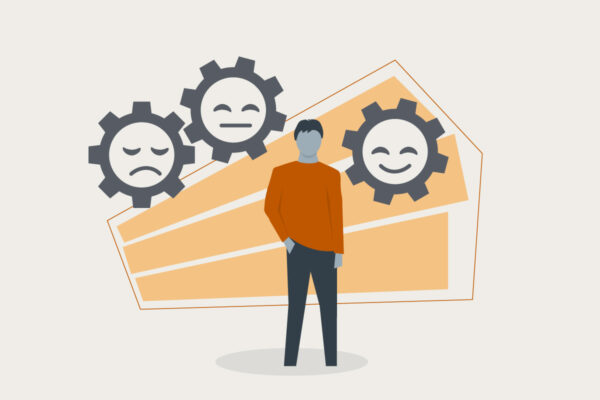People around the world counted down the end of 2020, hoping to move past the COVID-19 pandemic and other issues. Yet the pandemic continues this year, and even with rollout plans for vaccines, which will take time to implement, we still must manage a range of emotions. From the cancellation of major plans to job loss to grief from losing loved ones to the disease, people have experienced difficult situations.
People’s experiences are not the same, says Ginny Maril, associate director for clinical services at The University of Texas at Austin’s Counseling and Mental Health Center. “Trauma can look a lot of different ways for a lot of different people. Someone who has experienced trauma in their past is more likely to experience something in the future as traumatic because of that previous experience.”
Simple tasks that were once taken for granted, such as going to the grocery store, are now faced with increased alertness called hypervigilance. Maril says that this heightened sensitivity is a significant part of a trauma response. Individuals are on alert for whether others around them are wearing masks and social distancing.
As the Centers for Disease Control and Prevention states, the pandemic has highlighted inequalities experienced by people of color, who are also grappling with racial trauma. Many feel a lack of safety and have underlying health conditions that make them more susceptible to COVID-19.
In challenging times, anxiety, depression, denial and anger are all part of the grieving process, which goes hand in hand with trauma, Maril says. While some have mourned the illnesses and deaths of friends and family members, others have felt frustration over schedules that were thwarted and changes in daily life.
“None of us know how to do this, and yet we shouldn’t expect ourselves to be experts at navigating something that’s never happened to us before,” Maril says of COVID-19, the fourth pandemic since the 1918 influenza pandemic.
She notes that as the pandemic continues over an extended period, people’s reserves are depleting. “There hasn’t been a time where we can say, ‘OK, it’s over — I can figure out how to heal and move forward.’ We’re experiencing a lot of losses that are ambiguous,” she says. “Somebody might not be able to point to, ‘This thing happened to me and it was traumatic,’ but they might be experiencing trauma-like symptoms because of these ambiguous losses and not really be able to name what happened.”
So how can people cope going forward?
Maril says that rather than minimizing their feelings or being stuck in negative thought processes, people can cope by acknowledging and accepting that this has been a very difficult time for many — that they are not alone in their struggles. Reaching out via phone or computer to friends and family or a mental health professional can provide perspective.
She applauds UT Austin’s efforts to adapt in providing online resources to the community. Student organizations have moved meetings to Zoom, along with public events such as virtual bingo, offering a way for those feeling isolated to connect with their peers. The Counseling and Mental Health Center conducts online individual and group sessions tailored to specific needs, as well as classes and wellness events, and the university’s Employee Assistance Program offers remote sessions for faculty and staff wishing to speak about their concerns.
For people who are struggling, Maril urges them to focus on basic things that they can control, including eating healthfully and drinking adequate amounts of water. She also encourages people to practice self-compassion by treating themselves as they would those they care about. With self-care and the support of others, we can hope to feel better.




